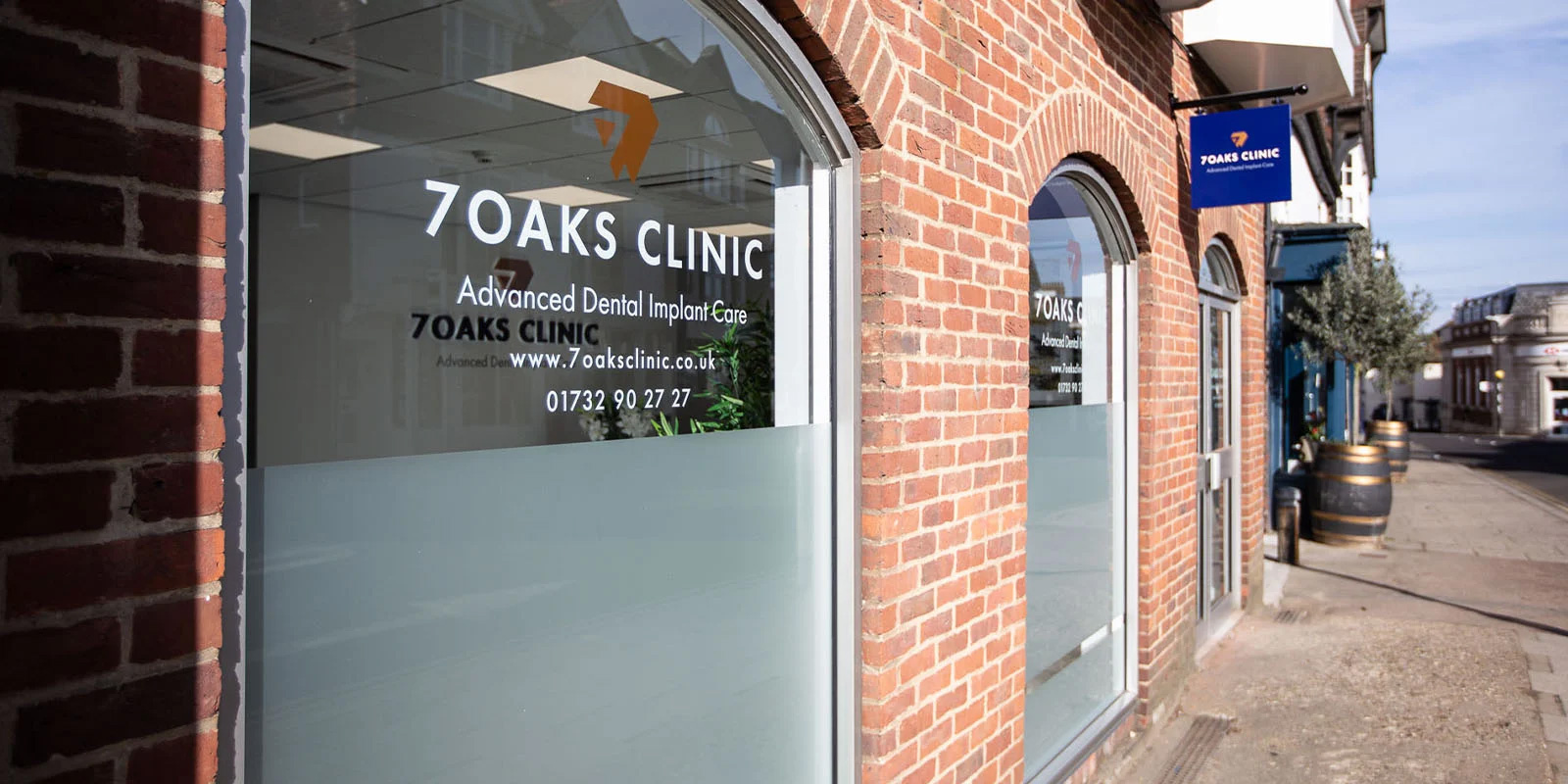
7oaks Clinic Blog features news and industry insight around dental implants and dental implant technology
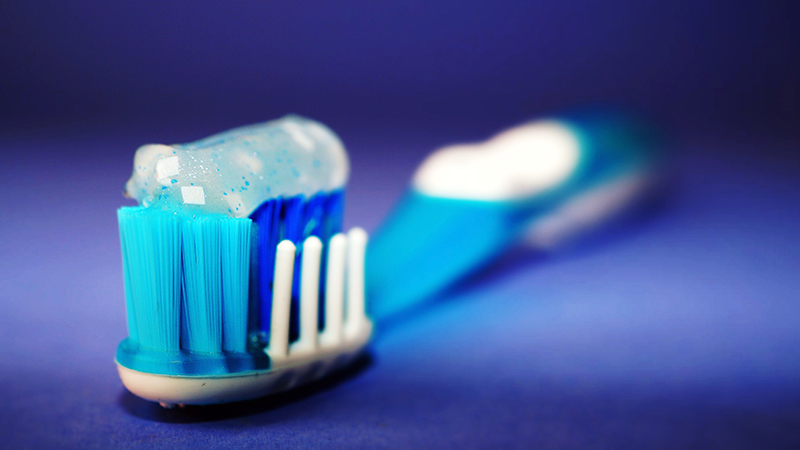
Published by 7oaksclinic blog on 20 January 2022 6:46 am

Whilst we offer industry-leading, affordable dental implant treatments at 7oaks Dental Clinic, one of our key concerns is dental health and the leading causes of tooth loss and tooth decay. In this article, we share some of the leading causes of tooth loss and decay, and what you can do to protect your dental health.
There are a number of causes of tooth decay, often stemming from normal behaviour and eating habits that can be easily adjusted to make it easier to avoid tooth loss in the long term, or natural human biology and how it interacts with our lifestyle choices.
Your mouth is full of bacteria that form a film over the teeth called dental plaque. When you consume food and drink that is high in carbohydrates, particularly sugary foods and drinks, the bacteria in plaque reacts, turning the carbohydrates into the energy that they need, but at the same time producing acid as a by-product of the process.
This acid can eventually break down the surface of your tooth, causing holes known as cavities in the enamel of the tooth, and leading to tooth loss in the long term. Once cavities have formed in the enamel, the plaque and bacteria can reach the interior of the tooth known as the dentin, softer bone-like material underneath the enamel, which speeds up the process of tooth decay.
Without treatment, bacteria will enter the soft centre of the tooth that contains nerves and blood vessels. At this stage, your nerves will be exposed to bacteria, usually making your tooth painful.
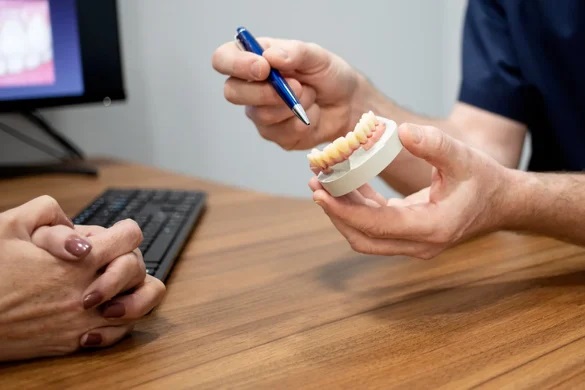
Whilst tooth loss and tooth decay can be a major cause of concern for many people, there are a number of things you can do to avoid tooth loss in the short and long term, as well as treatments available at your dentists to help with any current tooth decay you might be experiencing.
1. Visit your dentist regularly!
By visiting your dentist, early signs of tooth decay can be identified and treated as soon as possible – preventing further problems in the future. Tooth decay is much easier to treat in its early stages, and dentists can usually identify tooth decay and further problems with a simple examination or X-ray. It is recommended by the NHS that adults should have a check-up at least once every 2 years, and children under the age of 18 should have a check-up at least once a year.
2. Change Your Habits At Early Stages
Early-stage tooth decay, before a cavity has formed in the tooth, can be reversed by making some changes to your daily habits. Simply reducing how frequently you have sugary foods and drinks (as well as how much you have), and brushing your teeth at least twice a day with fluoride toothpaste can make a big difference in preventing tooth decay. Fluoride helps to protect teeth by strengthening the enamel, making teeth more resistant to the plaque acids, whilst reducing your intake of sugary food and drink reduces the amount of acid produced by the plaque.
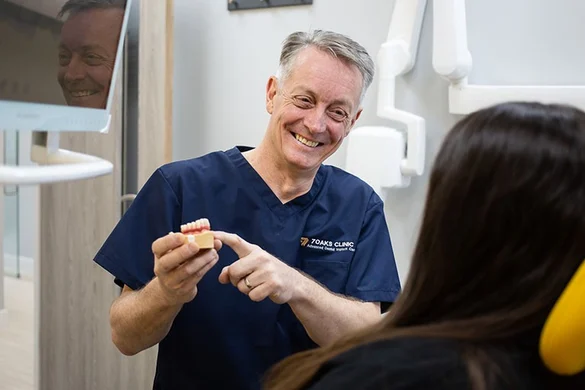
Gum disease is caused by excessive plaque build-up, and is one of the most common causes of tooth loss in the UK. Whilst plaque production is completely normal, there are some outside factors that can weaken the teeth’s defences and encourage rapid growth of plaque – leading to gum disease. These causes include:
To avoid the excessive build-up of plaque, and so avoid gum disease, the NHS recommends the following:
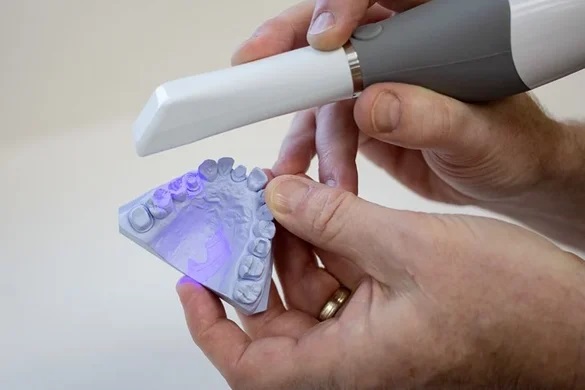
Aside from maintaining good dental hygiene practices, and reducing the amount of sugar food and drink that you consume, the best way to identify issues and prevent tooth loss in the long term is through regularly visiting your dentist. The NHS highlight why you need dental check-ups:
“A check-up allows your dentist to see if you have any dental problems and helps you keep your mouth healthy. Leaving problems untreated could make them more difficult to treat in the future, so it’s best to deal with problems early, or, if possible, prevent them altogether.”
In addition, your dentist may refer you to us for Dental Implant treatment should work be required to solve issues with your teeth caused by tooth decay and gum disease.
Whilst we hope this article helps you to identify changes you can make to avoid tooth loss or tooth decay, you may still need restorative services from 7oaks Clinic. Our treatments are affordable and you can read our patient stories to see some examples of patients who have had dental implants to replace missing teeth lost through issues like tooth decay or gum disease.